183 Oliver Luckett, What The Chainsmokers and Mark Wahlberg can teach you about The Social Organism1/30/2017
Never miss one of our best episodes by subscribing to the newsletter.
Oliver Luckett is a bona fide tech mogul. Having starting multiple companies and worked for clients like Russell Brand, Steve Aoki, Charlize Theron, Mark Wahlberg, the Chainsmokers, and Pitbull, he knows branding online. Oliver most recently sold his company theAudience, co-founded with Ari Emanuel of William Morris and tech entrepreneur Sean Parker. Prior, Oliver was CEO and co-founder of DigiSynd, a Walt Disney Company, and previously Oliver co-founded Revver, which helped kick off new media with their novel concept of the video rev-share. Prior to Revver, Oliver took the Norman Lear "Declare Yourself" campaign to the Internet and gathered more than one million new online voter registrations. Oliver still cherishes his bachelor's degree in French Literature from Vanderbilt University and recently moved to a home in Iceland. Oliver’s Book The Social Organism: A Radical Understanding of Social Media to Transform Your Business and Life Oliver’s Challenge; Reverse engineer the success that you hope to achieve. http://www.goingdeepwithaaron.com/podcast Connect with Oliver revilo@gmail.com If you liked this interview, check out episode 123 with Tucker Max where we discuss the future of branding and how to write a book.
2 Comments
Never miss one of our best episodes by subscribing to the newsletter.
Teresa Chahine, the Program Leader for Social Entrepreneurship at Harvard, literally wrote the book on Social Entrepreneurship. Social Entrepreneurship is a revolution occurring around the world today, where people from all walks of life are developing and implementing innovative, effective, and sustainable solutions in response to social and environmental challenges. These solutions include products, services, frameworks and interventions brought to market by both new startups and existing organizations, whether for-profit or non-profit. Her Book Introduction to Social Entrepreneurship summarizes the basic steps and tools needed to understand the challenge you are tackling, imagine and prototype potential solutions, build a business model, measure and grow your impact. Teresa’s Textbook Introduction to Social Entrepreneurship Teresa’s Challenge; Make a list of 3 things that really piss you off. Pick one to work on and join forces with others who share your mission. http://www.goingdeepwithaaron.com/podcast Connect with Teresa If you liked this interview, check out episode 134 with Gisele Fetterman where we discuss helping the less fortunate and transforming a town.
Reed Verdesoto’s business is ReedVerde. For the past 5 years he has worked in ministry creating music, film, and photographs for the Church. He has met many artists and students through collaboration who have imparted their wisdom and technical skills upon him and his work.
Reed enjoys the creative process, and being able to provide for my family, Kate (my wife), Lila, Edie and Adeline (my daughters). He hopes to create something that can be enjoyed and shared. Reed’s Challenge; You have friends that do something amazing. Ask them to show you how they do it. http://www.goingdeepwithaaron.com/podcast Connect with Reed Website Reed’s Wife @katyverde If you liked this interview, check out episode 68 with Wes Shonk where we discuss whiskey, bartending, and how to drink well.
Never miss one of our best episodes by subscribing to the newsletter.
Tom Corson-Knowles is an entrepreneur, blogger and international bestselling author. Today, he teaches new and established authors and writers how to achieve incredible success by writing and selling ebooks on Amazon Kindle. Tom is the founder of TCK Publishing, an international trade book publisher that is leading the industry in providing advanced marketing support for authors. TCK Publishing specializes in marketing for both fiction and nonfiction authors to help get their messages and stories out to millions of readers all over the world. Tom’s Challenge; Spend 15 minutes without any distractions (no phone or people) to think about the primary problems in your life and work on solutions. http://www.goingdeepwithaaron.com/podcast Connect with Tom Website If you liked this interview, check out episode 127 with Jim Miller where we discuss writing a 700 page oral history.
Kaelon started working in the public school sector when he was 19. He pursued business management in IT in college, but, like some well-known entrepreneurs, always found himself too entrenched in my work to focus on school. Kaelon held almost every position there was to hold in IT, eventually broadening his reach by working with school districts around the world for a Student Information System technology company.
Having the opportunity to work with thousands of schools, Kaelon gained a deep appreciation for and understanding of the data collection needs school districts have. He used that experience to build partnerships with school districts who utilize his paperless platform - with a goal to fundamentally improve data collection processes through an integrated ecosystem and reduce paper, providing schools with more time to focus on student learning. While I'm not a native Pittsburgher, Kaelon has lived here most of his life and is proud to contribute to the city’s entrepreneurial spirit. Much like the shift Pittsburgh made from coal and steel to environmentally friendly and sustainable energy, school districts around the world are making that shift as well. Kaelon’s Challenge; Take one day and spend it thinking of time as an investment, paying attention to what gives you the greatest return. Things that last longer than the time invested will typically be a good example. http://www.goingdeepwithaaron.com/podcast Connect with Kaelon Website If you liked this interview, check out episode 8 with our friend Jason Miller where we discuss starting a website as a side hustle.
Isaac Saul is a 25-year-old journalist based in Harlem, NY (and a decent ultimate frisbee player).
Over his career, Isaac reported on racism that drives sports fandom, how Harlem is combating gang violence, what harsh rhetoric and 9/11 security has done to our borders and the most unique home in America. His endorsement of Hillary Clinton received over four million views and altered the conversation around millennial support of the Democratic nominee. Yahoo subsequently named Isaac one of the 16 people who shaped the 2016 election alongside Khizr Khan, Bo Copley and others. In 2015, Isaac's investigative piece on predatory payday loans changed public policy when it was cited by Maxine Waters in a letter to congress urging Universities and retirement plans to divest from certain lending services. After losing several classmates to heroin overdoses, Ike took a deep dive into what caused our country's epidemic of opioid addiction. When Isaac left The Huffington Post, he worked alongside Ashton Kutcher and a talented team to build A Plus, one of the world's largest positive news outlets. His work has appeared on CNN, The Huffington Post, Medium, The Daily Mail, A Plus and more. A Plus was recently acquired by Chicken Soup for the Soul. You can check out my weekly column "A Grain of Saul" on A Plus every Tuesday morning. http://www.goingdeepwithaaron.com/podcast Connect with Isaac Saul Website If you liked this interview, check out episode 17 for our first interview with Isaac.
Underwritten by Piper Creative
Piper Creative creates podcasts, vlogs, and videos for companies. Our clients become better storytellers. How? Click here and Learn more. We work with Fortune 500s, medium-sized companies, and entrepreneurs. Sign up for one of Piper’s weekly newsletters. We curate links to Expand your Mind, Fill your Heart, and Grow your Tribe. Follow Piper as we grow YouTube Subscribe on iTunes | Stitcher | Overcast | Spotify
Josh Moore founded the American Ultimate Disc League in April 2012.
The American Ultimate Disc League is the first and largest professional ultimate league in the world. It strives to maintain the sport’s rich history, and its 24 franchises embody the robust spirit of ultimate's players, fans, and community alike. http://www.goingdeepwithaaron.com/podcast Connect with Josh Moore YouTube Website josh.moore@audl.com If you liked this interview, check out episode 164 with Don Grage where we discuss running the Washington DC Breeze and recruiting talent. Never miss one of our best episodes by subscribing to the newsletter.
Never miss one of our best episodes by subscribing to the newsletter.
Robert Scoble is an American blogger, technical evangelist, and author. Scoble is best known for his blog, Scobleizer, which came to prominence during his tenure as a technology evangelist at Microsoft. He later worked for Fast Company as a video blogger, and then Rackspace and the Rackspace sponsored community site Building 43 promoting breakthrough technology and startups. He currently works for Upload VR — a new media site covering virtual and augmented reality — as its entrepreneur in residence, where he develops new shows, events, and works with other entrepreneurs in the Upload Collective, a coworking space for virtual reality-focused startups. Mentioned Fragments Game on Microsoft Hololens Robert’s Challenge; Get VR. Use it to connect with others. If you don’t, you’ll be out of business. http://www.goingdeepwithaaron.com/podcast Connect with Robert Website Podcast If you liked this interview, check out episode 118 with Kevin Kelly where we discuss the inevitable forces that will shape our future or episode 111 with Kash Dhanda where we discuss virtual reality and building a digital marketing agency.
Aaron Watson: Smartphones and mobile are gonna be coming next in the form of virtual and augmented reality. So definitely a conversation that you're going to want to be paying close attention to and taking notes for. So here is Robert Scoble.
You're listening to going deep with Aaron Watson. Robert. Thank you so much for coming on, going deep with Aaron Watson. I'm excited to be speaking with you today. Robert Scoble: Hey, it's really, really great to be here. Aaron Watson: We've got lots to talk about but starting off with your new podcast inside AR and VR, and that obviously stands for augmented and virtual reality. This is a current passion for you. Something you're really sinking your teeth into over at upload VR. So, I wanted to start off with telling the story of maybe when you realized that this is the next big platform for digital. I know you've got a book coming up talking about how we're moving past the mobile generation, but if you can kind of start us off there with where that realization came from and what's got you so excited about AR and VR. Robert Scoble: It's been a process. I mean, I, first saw VR, I don't know, 20 years ago when my friend owned a store. Flight simulators run by an STI box that takes you back, and there are a few of us old people who are around for the first wave of VR, but this new wave is being driven by mobile because mobile is providing the R and D money to work on optics on screens, on sensors, on AI and other systems that are in mixed reality glasses. I realized this was real at web summit, when I'm Oculus, when Facebook or Oculus was showing off one of its an Oculus rift prototypes with what would become the touch controllers back then. And it was amazing, and everybody who came out of the room, you know, was amazed and used an expletive when they came out, you know, something like holy shit, I couldn't believe it, that's possible right? And yeah, that was pretty much it, that was off to the races, but the book came out of work. That's been going on all the way back to 2011. When I interviewed Mateo CTO, Mateo was the augmented reality leader back then. And apple promptly bought them after the interview. And I believe that they're one of the teams that's working on the next day. So, yeah, that it's been a process, you know, over the last couple of years, it's just been obvious to me, but by talking to people and seeing what's coming from VR and seeing the kinds of money that's being invested in VR. That's something really important is happening. Aaron Watson: Yeah. And you've made some exciting predictions, both about the upcoming Apple products, but just in general for the field, and you mentioned all the research and development that's going into it. Robert Scoble: Yeah. Aaron Watson: You're also very kind of clear about where there are still shortcomings or obstacles to overcome it. And that was kind of my impression. I've tried different versions of VR summit south by Southwest this year and Thrival, which is a Pittsburgh, similar conference. And there was the one where it actually is actually, I think McDonald's was hosting the thing, but you were painting within a virtual box and that was completely immersive. And like that was a game-changing experience for me. But I also had experiences where it was maybe just the headset and actually got like a little sick. So can you talk a little bit about what obstacles there are still to overcome and maybe what the difference was in those types of experiences? Robert Scoble: Yeah. There's a lot of physics for VR. I mean, today, if you want six degrees of freedom, VR, and that means you can move around and play basketball with your friends over the internet, right or shoe, or, you know, walk around things or climb in the climb. You need six degrees of freedom to do that. And to do that today, you need some sensors that are looking at you so that the system understands where your controllers are and where your head is. And that's way too nerdy way too expensive. The headsets are way too heavy, still, you know, on and on. And, and then, you know, its early days, so there's really not a lot of really amazing content, you know, there's a little bit and certainly enough to, you know, keep you in throttled for a week playing it, but pretty quickly after playing it for a month or two. You go, man, I'm bored. I've played all the cool stuff and there isn't any more to play, you know? And that's a function of headsets. Right now, you know, the HTC Vive is sold around a million. The Sony PlayStation sold a few million, maybe three or four like the Oculus rift is sold around a million. The Samsung Gear VR sold a little bit more than a million. And Google's given away a bunch of Google cardboards. I'm sorry. That's not enough headsets to get Hollywood excited because Hollywood gets excited when there's hundreds of millions of potential viewers, and they're just not the potential viewers out there. So Hollywood is not going to throw a hundred million dollars into a film for this yet. It's not there, but what we do have is pretty damn amazing and I believe that Apple solved the headset problem by the end of 2017. And, and if apple solves it, everybody will copy apple and therefore we're off to the races, you know? And then we'll see who really comes out with it. A brilliant design or a brilliant software, because a lot of this stuff is software and that's something, I don't know what Apple's doing. Right. I have some guesses, based on who they bought and based on how many engineers they have, they have 600 engineers working on just the 3d sensor, that kind of thing. But, yeah. It's still too expensive, too big, and too dorky, and normal people haven't had it on their face yet, so they don't even know what's going on. They hear about VR and go, “wow, that's something free for kids”. You know, the average person hasn't had a chance yet to even give it a try. So, that should all change by the end of a year from now. Aaron Watson: Yeah. A lot of entrepreneurs listen to the show Robert and one of the things that I'm fascinated by is there's clearly the avenue for immersive experiences, whether that's gaming or other, you know, where you're fully locked in having that singular experience with virtual reality. But there's also the augmented reality or mixed reality side of things which you know like you're saying what would move somewhere beyond a headset and maybe be a set of glasses. We see like the very, very early stages of this with Google Glass or Snapchat spectacles. And I'm curious, you know, I can remember barely when the first time we started talking about Amazon or these kinds of online e-commerce platforms and the discussion of, well, eventually this is gonna be, you know, most of the commerce that's going on. It's still not the entirety of it, but you-- my family spent most of our Christmas shopping on Amazon, as supposed to being in the mall. And I'd imagine that there's kind of a similar future coming where a lot of the holiday shopping or shopping, in general, would be in a virtual reality platform. So can you speak a little bit to what maybe is on the near horizon with that and how you see that changing commerce and advertising in the future. Robert Scoble: Oh man. First of all, everything's about to change. The technologies that are coming at us are a bigger change for the tech industry than we've ever had. End of discussion. What we're getting with mixed reality and Microsoft HoloLens is the first, you know, real credible effort here. It is a glass that puts stuff, puts virtual stuff on top of your real world. So, if you walk into a shopping mall, you're gonna ask it, you know. Hey, I hate Siri or Hey, Cortana, “where’s the blue jeans in this mall?” And for blue jeans will appear in the air, different brands and different brands underneath of who's selling them. You know, maybe Nordstrom's is selling, I guess, jeans, maybe a Levi's and selling Levi's jeans and stuff like that, where the gap is selling Levi's yet jeans. And so let's say I need Levi's jeans. I clicked on it with my finger or my eyes because there's eye sensors. And, say, take me there. And all of a sudden, a blue line appears on the mall floor taking me there and I follow the blue line and it takes me exactly to where those jeans are and at the gap, that's how everything's gonna work. You're gonna go to you know, sporting event and you got to see stats on top of the players. As they run down the field, you're gonna go to a museum, and you're gonna see videos about the artists next to the art that you're looking at and on and on. Everything is gonna change and everything about entertainment’s certainly gonna change. And that means there's gonna be a new kind of advertising. I believe every brand is gonna have a virtual component to it. Virtual articulation about what that brand is and what it stands for. And we're already seeing that Sephora is already building augmented reality makeup and their augmented reality makeup works and works today on an iPhone. You can get their app, download it, look at your face, put pink lipstick on your face, on your lips, and see what it looks like. And the virtual makeup, the augmented makeup is color-matched to the real makeup. So if you buy the real product, it matches what you saw on your face, with the virtual product, right? And every brand is going to have to do that in the next 10 months because as soon as you figure out Apple's coming with it, this kind of product, you're going to be investing, right, in innovation. Otherwise, you're going to go, you're not going to be innovative anymore. And if you don't get into this, right? Aaron Watson: Absolutely. And you mentioned Cortana or Alexa or Siri as these virtual assistants whom we're interacting within these virtual or augmented worlds. And that is another interesting component. I bought Amazon Echos for a bunch of my family this year to-- cause there's also this movement from text-based computing to computing, where you are speaking with the computer and training yourself to be able to do that, I think is just a great skill for people to start learning. And that kind of leads me to the next question of, as we move in this direction with more virtual reality, clearly familiarity is going to be valuable. But for someone who maybe isn't necessarily building tech or an explicit tech skillset, what skills are going to become more important or where can people build competencies now to benefit from this shift that's going to be happening? Robert Scoble: My advice is, to brands and to people who work in strategy and stuff like that, you have to get VR today. There's not enough. It's not an option anymore. You have to get VR because VR is the stepping stone to what really is coming and it'll teach you. It'll teach you how it works. It'll teach you how to build software for it because unity is the development environment that VR and AR is going to use. And it starts thinking, get, getting you to think about a user interface. That's spread all over the world. That in other words, it's a 3d user interface. They use your fingers to control your eyes and VR is how you are starting to get used to this and how you're learning about how customers are going to react to it. And if you don't have a VR system like an Oculus rift or a Vive, you're not in business in this business and you will be forced to get into this business in 10 months because Apple is coming, but why not get in there earlier? Because if you want to be on stage with Apple and, you know, be a modern, innovative company you need to be in VR today. Aaron Watson: One last question then we'll start wrapping up, Robert. It seems as though there is a general positivity to your view of this kind of new transformation that is coming. Would you say that you are generally optimistic about this kind of next stage of digital innovation? Robert Scoble: Yeah and that optimism comes from owning it. This is why you have to own it. You have to own it. There's no option. You can't go to make Microsoft store for an hour and think, you know everything about VR. It's not going to happen. I've had it all summer and I'm still learning a lot. And I'm certainly learning by having my friends come over and play it and watching my kids play it. And I know it's going to be huge because of that experience. Everybody loves it. And when it gets cheap enough and gets small enough, it's going to explode and that's called an Apple. Apple, Apple, Apple. And if everybody, who wants to be an innovative company, understands that, then they're building for it already. And they're going to be ready for when Google comes in and Microsoft comes in and magic leap because there's hundreds of billions of dollars being spent in this world. Now on this new technology, augmented reality, that's coming and it's quite stunning. You know, and here's one thing. I have a Microsoft HoloLens, which puts virtual stuff all over your space. And there's a game there called fragments. And you have to go through and map out your room, and then it puts a murder into your room and there's rats crawling on the floor and there's stuff on the walls and that, and it's on your walls because it knows where every surface is in your room. Right. And it's stunning. There's nothing like it. You can't do this on TBU or in movies. So there's a new world coming and it, we all know it's coming and, you know, in the next three years, Apple's coming in 10 months. Aaron Watson: So people can definitely get ready for apple and hop on that train when it comes. But if someone is really feeling inspired.. Robert Scoble: No, you're not going to be ready if you want to be on stage with Tim Cook like if you're a let's say you're a hotel chain and you know, like Marriott is number one, right, or Aaron Watson: Yeah. Robert Scoble: If you want to be on stage with Tim cook saying, “Hey, we just designed augmented hotel of the future. It's like Disneyland, come in and bring your apple, a new apple phone to a Marriott property and see how cool it is.” You have to be building now. You can't start building when Apple announces something you have to build before Apple announces something. And that means you have to have faith with Apple is actually doing something important, but Tim Cook has been telling you that he's doing something important for the last eight weeks. He's every week he's been mouthing off to the press, AR is coming. It's going to be huge. So if you don't believe Tim Cook, then you're just not a rational business person. You're just not a rational business person. You should just quit your marketing job today and go home. Right? Aaron Watson: Absolutely. I totally agree. Having tried it out, there's definitely something cresting on the near horizon. I'm with ya. And I hope that people will hear this and get inspired to get educated. Robert Scoble: I mean, magically we've got $1.4 billion dollars without having a customer without having a product. And why? Because they showed off credible mixed reality. And in a fantastic optic that turned out, they couldn't make it. So they're going to more standard optics, which are still mind blowing. Keep in mind, everybody, I put a HoloLens on, this is absolutely mind-blowing. And, the HoloLens is too big and too expensive and not high enough resolution yet. And the viewing angle isn't there yet, but it's still mind blowing even with all those problems. So we're way ahead of where the apple too was, right? In terms of kicking off a new industry and in the next year, you're going to see another version of HoloLens, which will be a lot smaller. How good will it be? We'll see the guy whose building says, you know, version two is going to be a big improvement and version three is going to be the one you want to own. Well, that's three years away, right? So we're about to get version two and see how cool the Microsoft one is, when it is and how, and then we'll go see apple and apple is the big event because apple has a brand that Microsoft doesn't have. And, Apple is a brand that people want to wear on their face and which is a prerequisite for this new world and its, and they own, the best companies they buy. You know, Tim Cook for the last seven years has been working on this next iPhone. Been buying a lot of companies for billions of dollars. So it's gotta be a lot of fun. Aaron Watson: Absolutely. And you are going to be covering it both on the podcast and in the other forums where people follow you. If people want to connect with you in the digital world, Robert, where can we direct them? Robert Scoble: The best place is Facebook and that's where I put most of my effort but coming in 2017, you'll see me spread my effort out to a few places. But you always find it on Facebook. The other places like the podcast and the newsletter and other efforts that we're doing. Aaron Watson: Fantastic. We'll be sure to link to that in the show notes for this episode, but as we do at the end of every interview, Robert, I would like to give you the mic a final time to issue an actual personable challenge for the-- Robert Scoble: But, I think I already laid it down, get VR and tell me why I'm wrong, but you have to do it from a credible place, which means you have to play it, you know, 20 hours of VR first. And then you can tell me how I'm wrong. But so far nobody's done that. I get VR because one it's fun. Number two, your kids will love you more. It's helping me out with my kids because I am the cool parent on the block right now. I have VR and nobody else does right and it helps you figure out what's gonna work in this new world and it will help you iterate into that new world in a reasonable way. Instead of you being forced to in three, in three years, you're going to have to do it if you're a business strategist, right. Because it's going to be so obvious that if you don't do it, you're out of business. And three years from now, if you're going to have to hire a unity of programmers and get a software team working together and, and being creative, that's really hard to do from the, from zero to a hundred miles an hour, right? It's really easy to do right now because you have to go to 10 miles an hour this month, 20, the next month, 30, the next month, 40 in the next month, 50 the next month. And you can figure out how to do that in a calm, measured way right now, I, if you wait you're not going to be successful and I can show you how that happens. Aaron Watson: I love it. I think a lot of people are going to be inspired and take the challenge. And I think another thing that just kind of baked into that challenge, that was interesting was the idea that you're using to connect with your family. You're the, got the cool house on the block that other people are coming to try it out. And really the idea that VR can be an avenue to connect and not kind of the dystopian separation between people. I think that we kind of take social networks in their current form for granted and what they can turn into on a virtual reality platform can be pretty exciting. Robert Scoble: That's a good point. If you get VR, you understand where things are going and if you're building software and building a company that $3,000 is not going to be a major expense. You know, I understand this step is expensive for normal everyday people, but I'm not talking to normal everyday people here who are listening to that show, I'm talking about business strategists, people who are going to drive major companies, you got to get into this. It's not going to be optional soon. Aaron Watson: Awesome. Well, I'm sure people are gonna be inspired. Robert, thank you so much for sharing your time and wisdom with us today. We just went deep with Robert Scoble hope everyone out there has a fantastic day.
Never miss one of our best episodes by subscribing to the newsletter.
Jacob Zax’s company, Edify, develops technologies that make learning more fun, creative, and accessible for people around the world. Their current focus is music, with a new app, MusiQuest, that inspires beginners to love and understand music by teaching them to compose their own songs in styles from pop to classical. MusiQuest is an educational expansion of their first app, Sketch-a-Song, which has been used by over 300,000 people to create over 2,000,000 pieces to date. Jacob’s Challenge; Diversify the media sources that you are consuming. http://www.goingdeepwithaaron.com/podcast Connect with Jacob Website jacob@edify.co If you liked this interview, check out episode 151 with Matt Keener where we discuss telemedicine and delivering brain health.
Never miss one of our best episodes by subscribing to the newsletter.
Calvin Wayman is an author, speaker, sales expert and social media entrepreneur. In his early twenties, being awkward and shy, he held a company record for the WORST performance a sales agent ever had. After almost being fired, he found a mentor and went on from having the worst performance to the best. He attributes his tenacity of “never giving up” to lessons he learned going out and knocking on random households, selling door-to-door. In 2016 alone, Calvin Wayman started a social media management business, wrote his first book, and was featured in Entrepreneur Magazine, Social Media Examiner, The Huffington Post. He was also named one of “The Top 30 Entrepreneurs Under The Age of 30” by Influencive.com. Calvin’s 4 C’s of Social Media Content - Show you Exist Context - Know the Platform Consistency - Build Trust & Brand Connection - Create Real Relationships Calvin’s Book Fish Out of Water: The Guide to Achieving Breakthrough and Permanently Transforming into the New You Calvin’s Challenge; Take a legit cold shower. It toughens your psyche and helps you focus on success. Calvin’s Gift Free Social Media Makeover Connect with Calvin Website If you liked this interview, check out episode 144 with Clinton Senkow where we discuss global entrepreneurship, influence, and developing your writing skills. |
Show NotesFind links and information referenced in each episode. Archives
August 2023
|
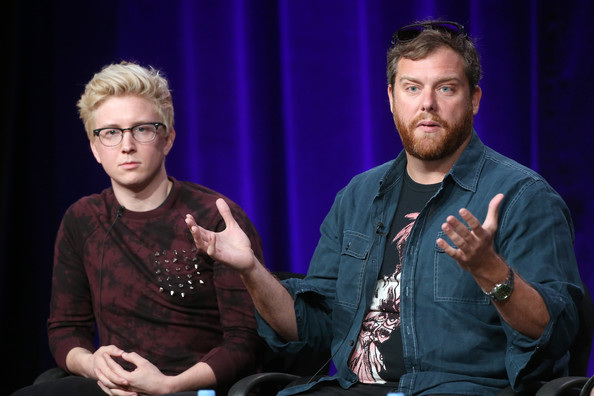
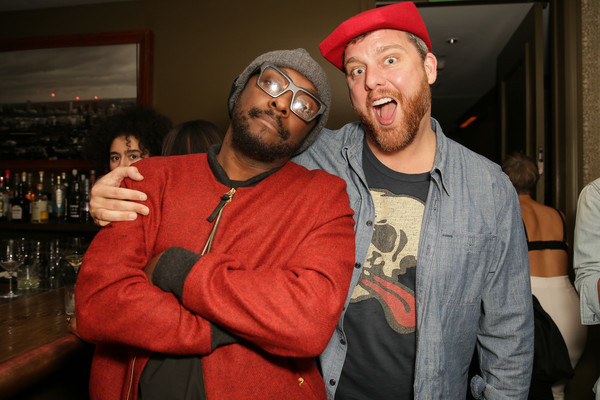

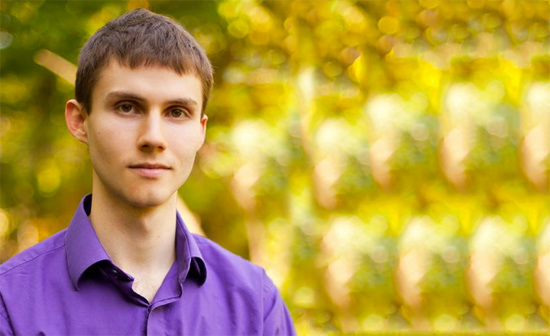
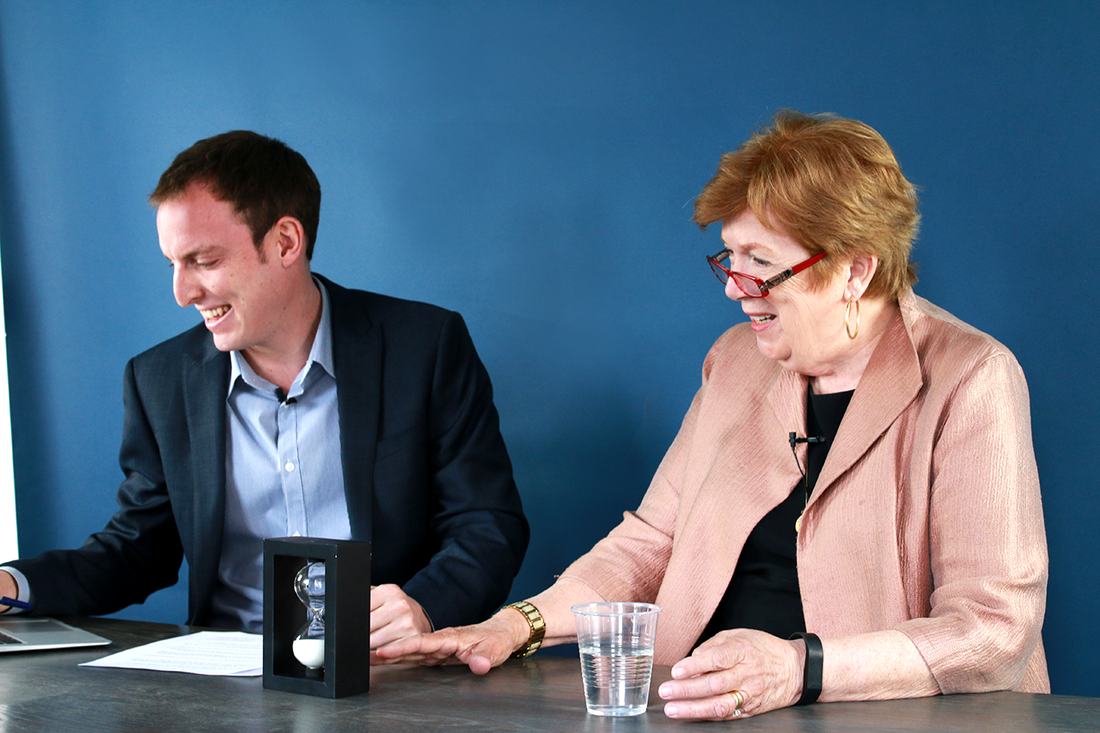
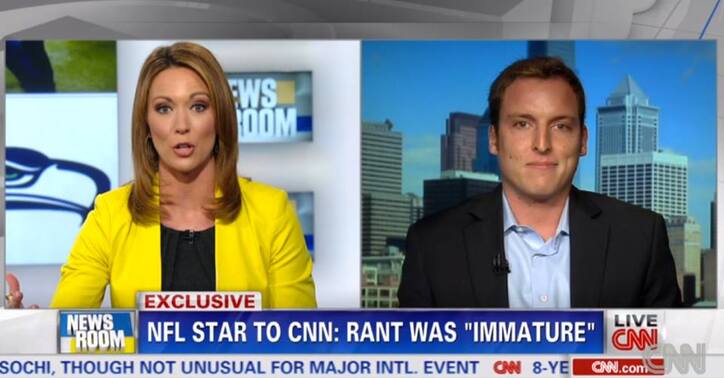
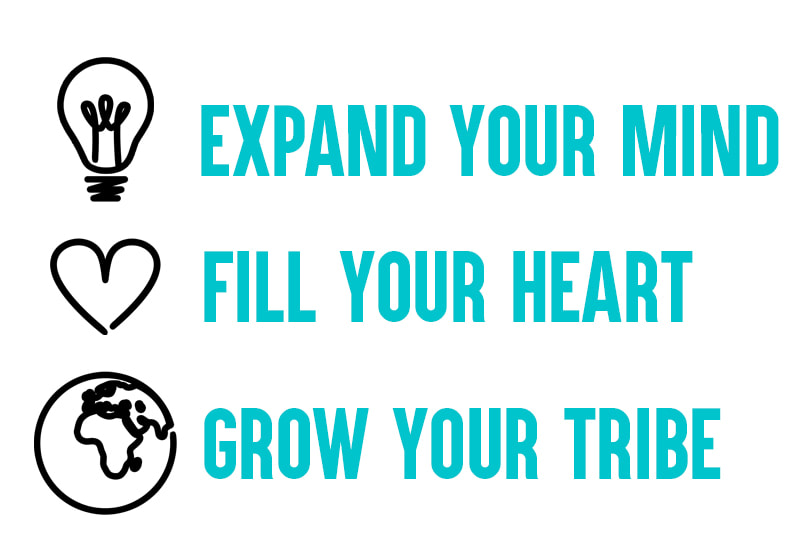

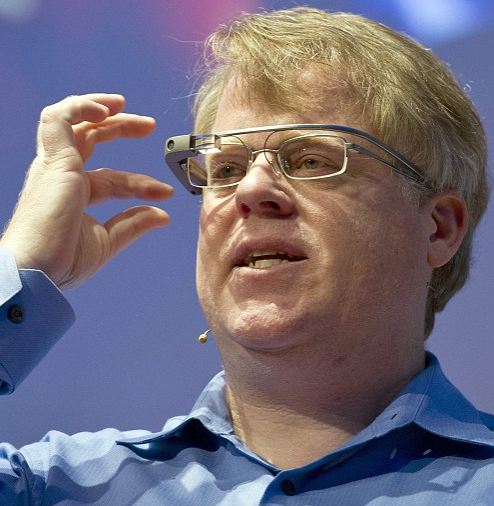
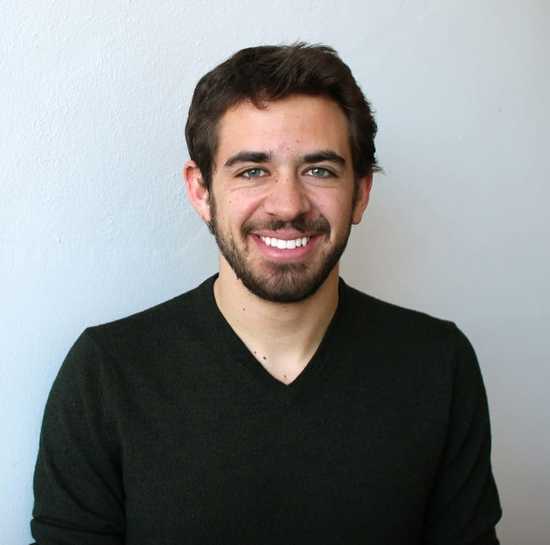
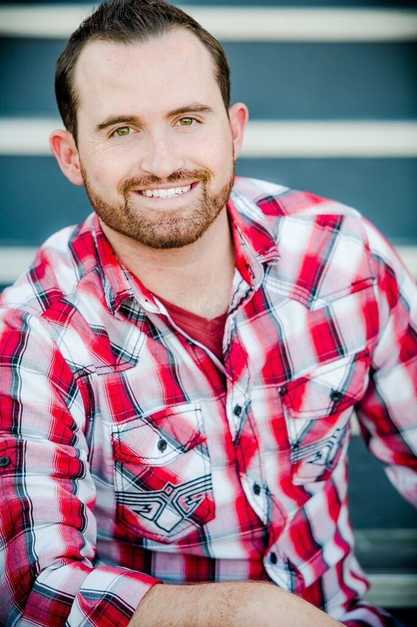

 RSS Feed
RSS Feed